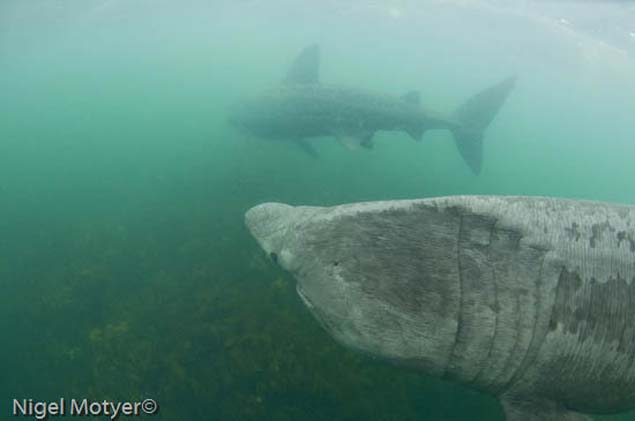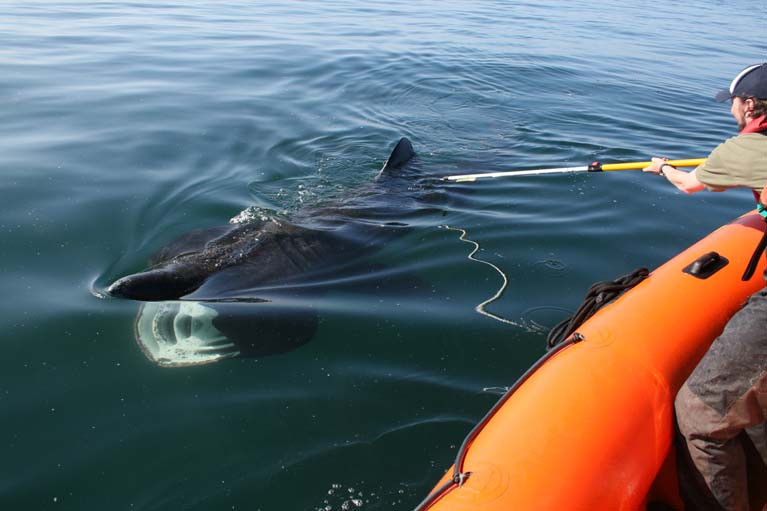Basking sharks which were sampled off the west Kerry coast in early Spring have proved to be genetically different to all other such sharks tested in the north-east Atlantic, according to a newly published study writes Lorna Siggins.
The study on the migration routes of basking sharks also shows that the animals prefer to swim “en famille” to known feeding locations.
Researchers from the Galway-Mayo Institute of Technology (GMIT) participated in one of the most comprehensive studies of the genetics of one of the world’s largest fish.
The project findings, led by the University of Aberdeen, Scotland, were published this week in the journal, Scientific Reports.
Hunted off the south Irish coast by Norwegians until the 1980s, and off the west coast for the Achill fishery in the 1950s and 1960s, the basking shark is known among coastal communities as the “sunfish” due to its preference for swimming just below the surface.
 Two Basking Sharks Photo: Nigel Moyter
Two Basking Sharks Photo: Nigel Moyter
It is also known as “liop an dá” (unwieldy beast with two fins) or more generally “liabhán mór”, denoting a great leviathan.
It is protected in some waters and was recently classified on the International Union for Conservation of Nature “red list” for endangered species
The plankton-eating fish is distinctive for its open mouth. It has been estimated that a seven-metre shark, cruising wide-mouthed at a speed of two knots, will filter 1,484 cubic metres of sea-water per hour.
Basking sharks can grow to more than ten metres, can dive to depths of more than a thousand metres, and feed on plankton in areas of the northeast Atlantic including the west coast of Scotland, Ireland and the Isle of Man.
The researchers note that “up until recently very little was known” about their biology, as they only appear briefly at the sea surface each spring before “vanishing into the ocean depths”.
Through establishing a register of genetic profiles with regular swabbing, the researchers were able to identify individual basking sharks when they arrived to feed. The results revealed that the fish repeatedly returned to the same feeding sites in successive years.
Fieldwork off Donegal by GMIT’s Dr Simon Berrow and Emmet Johnston of the Irish Basking Shark Study Group led to a “breakthrough” in sampling, by collecting skin mucus samples in large groups of sharks - quickly, and with minimum disturbance.
The researchers say that one of the “most surprising” findings among the “cosmopolitan” filter feeders is that basking sharks sampled off Ireland in spring were genetically distinct from other north-east Atlantic fish, including those sampled later in the year off Co Donegal.































































